Africa in the spotlight: How Japan, China and Indonesia are building connections
Japanese academic Mitsugi Endo takes a look at the recent and upcoming Africa-related forums held in China and Japan, and notes that the continent is a rising area of focus, especially in Asia, with South Korea and Indonesia also seeking to engage with African countries.
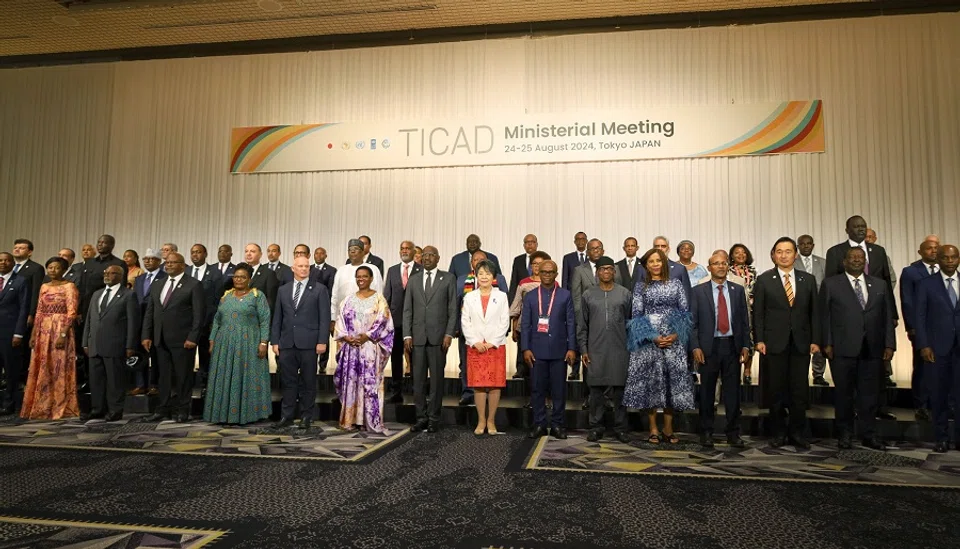
The Tokyo International Conference on African Development (TICAD) Ministerial Meeting, which brought together ministers from 47 African countries, was held in Tokyo on 24-25 August as a preparation for TICAD9, which will be held in Yokohama in August next year.
On the second and last day, the Joint Communique of the TICAD Ministerial Meeting was adopted. The topics discussed over the two days were society, peace and stability, and economy — the three main pillars that make up the theme of TICAD9: “Co-create innovative solutions with Africa.”
... diplomatic relations with the region are increasingly recognised as important.
TICAD, which began in 1993, was launched as a multilateral international meeting with the main focus on “African development”.
Africa’s position in Japanese policy has changed
Today, Africa’s position in Japan’s economic diplomacy and economic security has changed dramatically as a continent blessed with rare mineral resources, in addition to an economic market whose population is estimated to exceed 2.4 billion by 2050.
In addition, the region has a strong numerical presence among the nations currently referred to as the “global south”, and diplomatic relations with the region are increasingly recognised as important.
At TICAD6, held in the Kenyan capital of Nairobi in 2016, then Japanese Prime Minister Shinzo Abe first mentioned a “free and open Indo-Pacific” in his keynote speech. This was later described as a new TICAD, and it marked a stage of major changes in diplomatic policy.
Part of Japan’s ‘free and open Indo-Pacific’
The recent ministerial meeting, while continuing the previous agenda, put forward four approaches that cut across the three pillars: connectivity; women and youth; women, peace and security (WPS); and public-private partnerships to build inclusive and responsible global governance that promotes a free, open and fair international order based on international law.
The last approach is basically an idea developed and inherited from “the free and open Indo-Pacific”. The joint communique also touches on social development issues such as universal health coverage (UHC), to which Japan has traditionally attached importance.
Among these, the Japanese domestic media focused on the following points, which were discussed under the theme of “promoting trade and investment” and clearly stated in the joint communique: “We committed to making efforts to forge a strategic partnership with the private sector in order to improve Africa’s business environment for inclusive economic growth and sustainable development.”
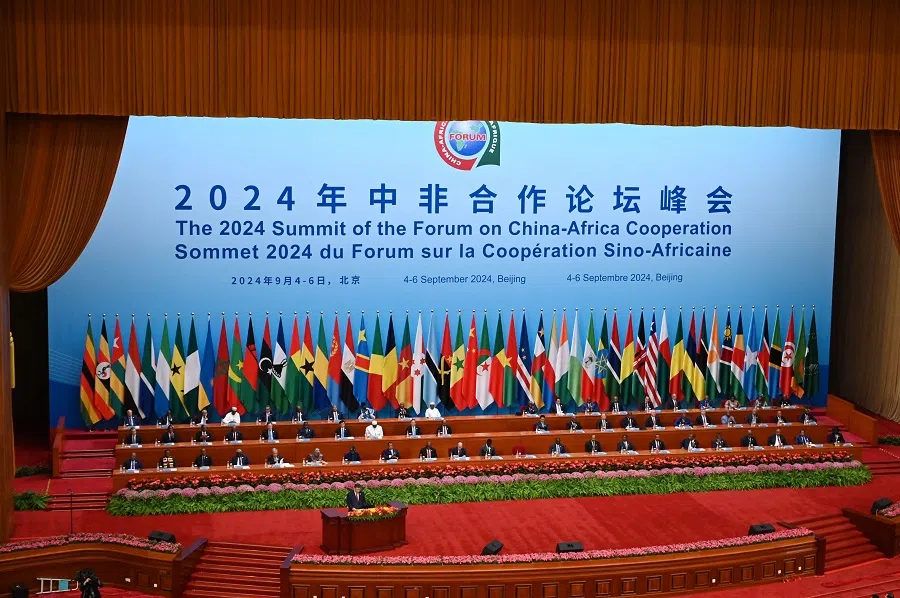
Also clearly stated were efforts to promote trade and increase investment, the need to strengthen cooperation to better address the perception of investment risks in Africa, and the need for effective and responsible use of digital technologies, including artificial intelligence.
These developments are believed to be due to the importance of improving the environment in Africa to support start-ups, as well as the fact that Japan recognises the need for TICAD to build new relationships with African countries, including the involvement of the Ministry of Economy, Trade and Industry as well as the Ministry of Foreign Affairs.
Prior to FOCAC9, Chinese President Xi Jinping held bilateral meetings with nearly 30 heads of state and government...
Beijing’s all out pursuit
Ten days after the TICAD ministerial, the 9th Forum on China-Africa Cooperation (FOCAC9) was held in Beijing from 4-6 September. This was the fourth summit-level meeting after the previous two summits in Beijing and the Johannesburg summit in South Africa.
The theme of this summit was “Joining Hands to Advance Modernisation and Build a High-Level China-Africa Community with a Shared Future”, with China aiming to build closer ties with African countries. The summit adopted an action plan and a 30-point declaration on “Jointly Building an All-Weather China-Africa Community with a Shared Future for the New Era”.
Prior to FOCAC9, Chinese President Xi Jinping held bilateral meetings with nearly 30 heads of state and government, including South Africa, Nigeria and this year’s chair of the African Union, Mauritania, and actively sought to build “strategic partnerships”.
Increasing commitment
In his speech on 5 September, Xi announced that China would provide more than US$50 billion in financial assistance in ten areas over the next three years. The details of financial assistance in security-related areas were not spelled out, and the proportion of the total aid amount is not high, but about US$4150 million will be allocated to military aid (including providing training for 6,000 military personnel and 1,000 police and law enforcement officers from Africa) and joint military exercises.
The total amount of aid this time is down from US$60 billion at the 2015 and 2018 summits, but on the other hand, it is up from US$40 billion at the 2021 FOCAC Dakar Conference, which was held as a ministerial meeting.
The figure seems to have been calculated by the Chinese government to demonstrate the importance of strengthening ties with Africa, given that the summit is being held in Beijing, despite the growing challenges of the domestic economy, including the real estate recession. There was also no mention of debt repayment in Xi’s speech.
... Xi called for solidarity in resisting the US-centred international order. This is a logic similar to the rhetoric of Russia, which has sought to strengthen its ties with military regimes in West African countries.
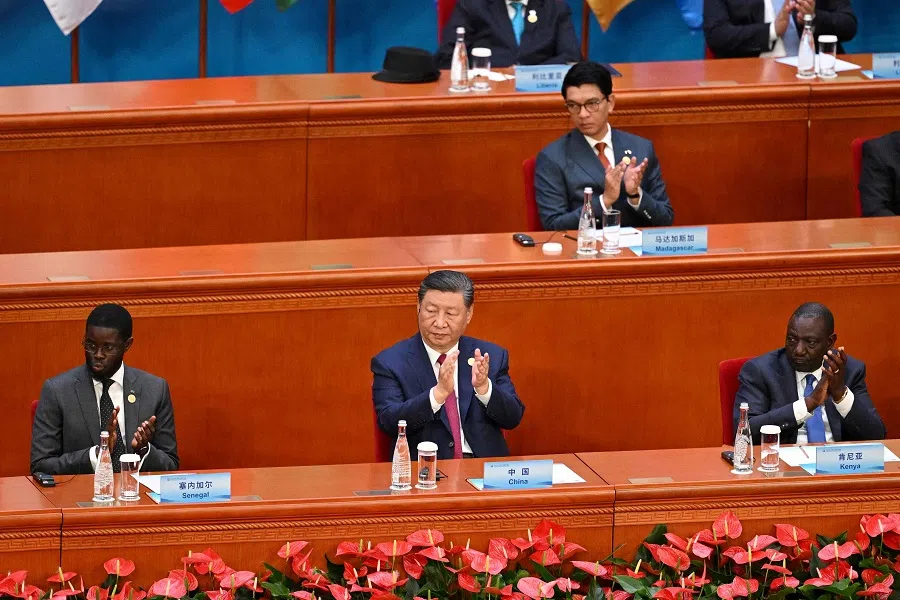
The Beijing Declaration also mentioned strengthening “exchanges of governance experience” that have been implemented since the Dakar Conference, and indicated a policy to further strengthen exchanges with political party officials, which have been promoted mainly in Southern Africa, where political parties have historically had strong ties.
In addition, in a policy reminiscent of the US African Growth and Opportunity Act (AGOA), Xi announced a policy to eliminate tariffs on all products imported by China from the Least Developed Countries (LDCs), including 33 African countries.
Comrades-in-arms?
The relationship with Africa demonstrated in Xi’s speech underscored that China and Africa are closely linked by similar historical experiences and a common historical mission.
In other words, while touching on the common memory of China and Africa as victims of colonialism by Western powers, Xi called for solidarity in resisting the US-centred international order. This is a logic similar to the rhetoric of Russia, which has sought to strengthen its ties with military regimes in West African countries. It also shows that the divided world is being projected onto Africa.
Indonesia’s ‘south-south cooperation‘
Furthermore, in the short gap between the TICAD ministerial meeting and FOCAC9, Indonesia hosted the Indonesia-Africa Forum on 1–3 September, the second time since 2018. Because the forum was held just before FOCAC9, only four African leaders attended, but delegations from about 20 African countries were present and agreed to a total of US$3.5 billion in cooperation in energy and medicine.
President of Indonesia Joko Widodo, aware that the disregard for multilateralism has led to growing divisions and has had a major negative impact on developing countries, is believed to be seeking to promote “south-south cooperation” in areas such as food and energy, and to increase the country’s presence in the so-called global south.
Indonesia is predicted to become an economic superpower in the 2040s, surpassing Japan, so this is also seen as a stepping stone to strengthening relations with Africa in the long term.
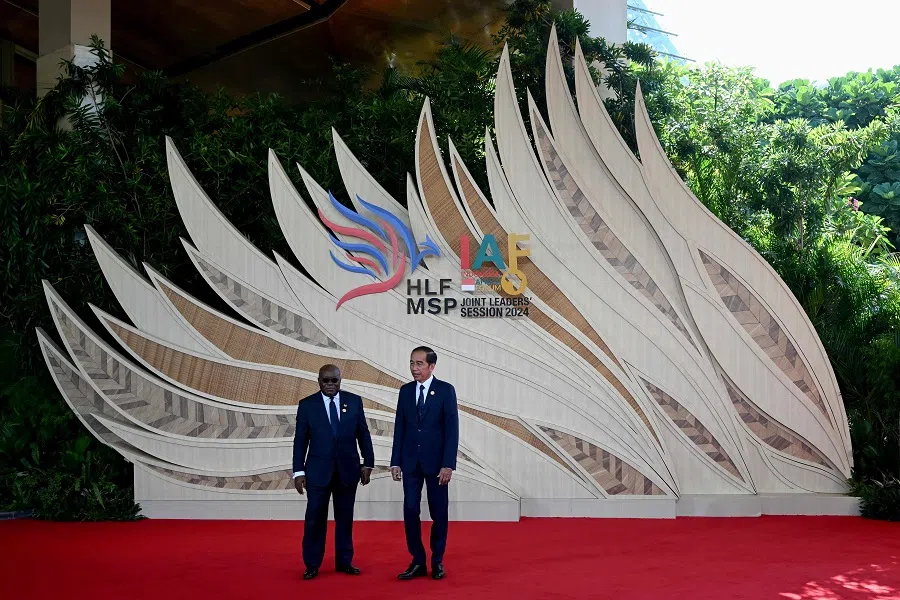
South Korea also hosted its first Korea-Africa Summit in June 2024, and has begun negotiations on economic partnership agreements (EPAs) with African countries.
With the proliferation of various platforms related to Africa, what unique cards can each country play? Even in Asia alone, an extremely competitive situation has emerged. Japan will be called upon to create a central agenda for TICAD9 to be held in 2025, taking into account the state of engagement in Africa in each of these countries.
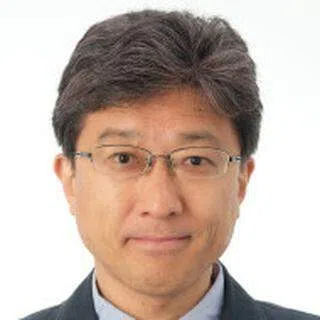
![[Big read] Paying for pleasure: Chinese women indulge in handsome male hosts](https://cassette.sphdigital.com.sg/image/thinkchina/c2cf352c4d2ed7e9531e3525a2bd965a52dc4e85ccc026bc16515baab02389ab)
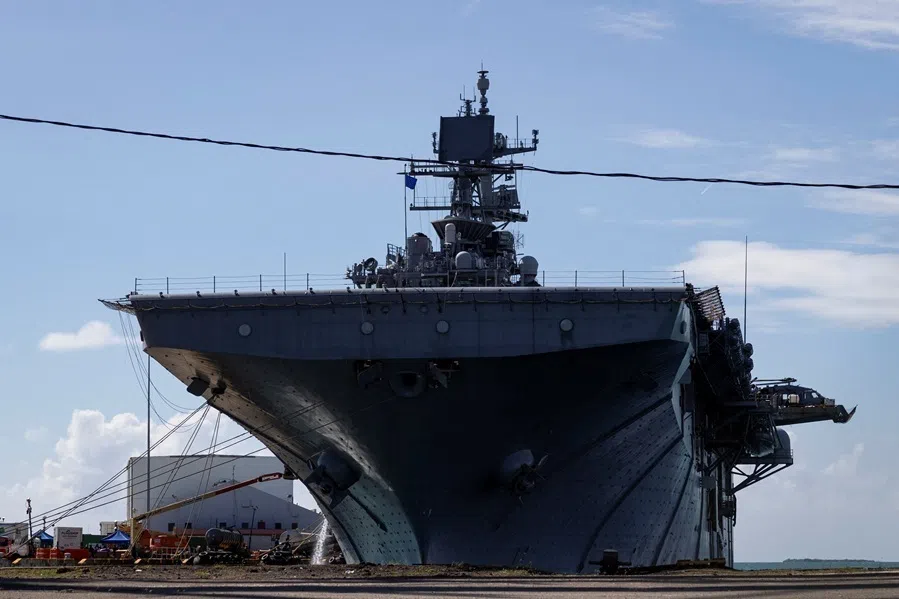
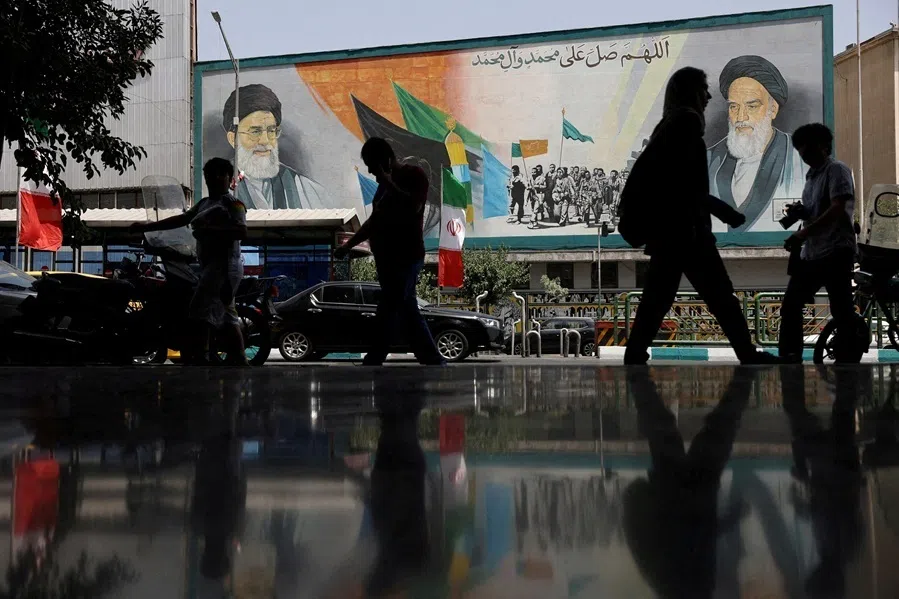
![[Big read] How UOB’s Wee Ee Cheong masters the long game](https://cassette.sphdigital.com.sg/image/thinkchina/1da0b19a41e4358790304b9f3e83f9596de84096a490ca05b36f58134ae9e8f1)
